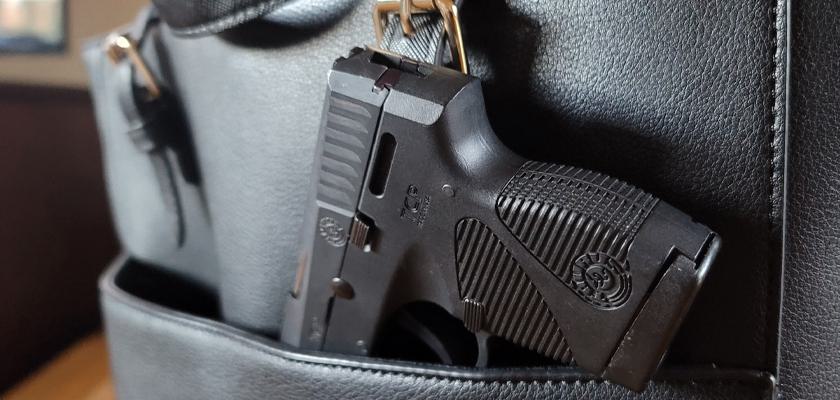On Wednesday, the Alabama House of Representatives voted not to concur with Senate changes to the permitless carry bill.
Permitless, also called Constitutional carry, would eliminate the requirement that Alabamians must purchase a concealed carry permit from their local sheriff in order to carry their handguns with them concealed on their person or in a motor vehicle. Alabama is already an open carry state where any adult may carry their firearms with them openly without paying for permission from the sheriff. Concealing a handgun under a jacket or in a purse or in a vehicle (even on a motorcycle), however, requires purchasing a permit from their sheriff, who can deny the permit at their discretion.
House Bill 272 (HB272) is sponsored by State Rep. Shane Stringer (R-Satsuma). Stringer is a former Satsuma police chief. Last year he was fired from his position as a Captain in the Mobile County Sheriff's Department for his championing of Constitutional carry legislation.
Stringer said that the Senate substitute bill:
Restores the ability of a person with a concealed permit to go onto private property
Allows property owners to put up a 'no guns allowed' sign to forbid gun owners from carrying on their property
Bans carrying weapons in the primary office of an elected official
Changes the definition of court annex to include probate court
Gives law enforcement the ability to demand that gun owners hand over their weapons during a traffic stop if they have a “reasonable belief” that a person has committed a crime or is planning a criminal event. The officer can then check the person’s weapon.
Prohibits a person from knowingly touching a weapon during a traffic stop - that would be a class C misdemeanor
Establishes a grant process to compensate sheriffs for any financial losses their office may incur from the passage of permitless carry. Sheriffs who can show that their pistol permit sales revenues went down could apply for a grant to make up that loss from the state. This would be paid for with a $5 million line item in the State General Fund (SGF).
The Senate version changed this back for holders of a concealed carry permit so that permitholders carrying on private property without the property owner’s consent would not be guilty of a gun crime. People without a permit would be guilty of that gun crime.
The Senate version, however, also added a number of provisions that had been demanded by law enforcement.
Stringer said that he was concerned with the language in the bill regarding “reasonable belief,” which is not clearly defined in Alabama law. Stringer explained that law enforcement can already take a person’s weapons in the event that he has “probable cause” that a crime has been committed. Stringer expressed concern that “reasonable belief” may be a new lower standard.
“If we can take up this issue we can have a good clean bill that would be good for gun owners and businesses,” said State Rep. Mike Jones (R-Andalusia). “We also don’t want to open up a door that allows an inexperienced officer or a bad officer to take advantage [of citizens].”
Baldwin County attorney Harry Still III told 1819 News, “Just because I want to express my Second Amendment rights does not mean that I am willing to surrender my Fourth and Fifth Amendment rights against an unreasonable seizure.”
Still, who opposes the new restrictions on gun owners carrying on private property agreed with the decision to nonconcur with the Senate version because of the provision that requires citizens to surrender their weapons during encounters with law enforcement. Still is challenging Attorney General Steve Marshall (R) in the Republican primary.
The House voted 71-13 to non concur with the Senate bill and send it to a conference committee.
Speaker of the House Mac McCutcheon (R-Monrovia) appointed Jones, Stringer, and Rep. Ralph Howard (D-Greensboro) to represent the House on the conference committee.
If the conference committee can agree on a compromise version of HB272, that bill still must pass both houses of the legislature, and be signed by the Governor, to be passed into law.
To connect with the author of this story, or to comment, email brandon.moseley@1819News.com.










